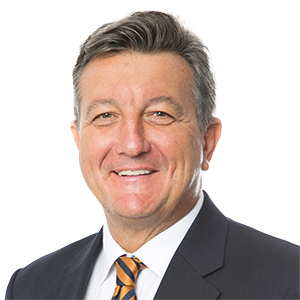Africa urgently needs electricity to grow and develop because 600 million people on the continent currently have no access to power. Electricity is an absolute necessity for Africa to improve its ability to achieve and advance the United Nations' Sustainable Development Goals (SDGs). The SDGs include eradicating poverty and hunger, good health, excellent education, clean water and sanitation, employment opportunities, and economic growth - all of which require stable and affordable energy access.
Renewable energy can provide off-peak power. However, without the battery technology to store it efficiently, it is debatable whether Africa can meet its growth potential without the baseload power needed to industrialise its economies. Baseload power is traditionally provided by coal-fired power plants, natural gas plants, nuclear power plants and some alternative fuels.
The critical question to be answered by African leaders, government officials and representatives at COP27 in Sharm El-Sheikh, Egypt, is whether impoverished African nations can achieve the SDGs without using fossil fuels.
With rich nations proposing solutions to cut carbon emissions, these nations need to remember that Africa requires urgent support and baseload energy infrastructure to meet its growth and development needs. Emphasis on Africa keeping its carbon emissions low (currently just over 3%) while not proposing concrete solutions for economic acceleration could be tantamount to asking the continent to stall its development and remain in unfavourable conditions.
Many African leaders argue it is hypocritical to insist that Africans freeze their carbon emissions, let alone cut them from already low levels. In a recent op-ed, Vice President of Nigeria, Oluyemi Oluleke Osinbajo, wrote in the Financial Times and took a swipe at those with "a naive belief in leapfrogging, the assumption that, like skipping landlines for mobile phones, Africa can 'leap' to new energy technologies". Osinbajo does not believe it is this simple or easy to address.
The one thing Osinbajo is certain of is that wealthy countries cannot propose solutions that keep other countries poor. The result of such unjust propositions, he says, would be both predictable and devastating, with millions of people crossing the Mediterranean heading for Europe in search of a carbon-heavy lifestyle.
Most of the world's wealthiest and most developed nations are locked into carbon-rich energy procurement paths that make switching to greener technologies a perfect ideology but far more challenging to implement. However, Africa's lack of energy infrastructure means it can prioritise using some clean energy technologies such as electric vehicles, hydrogen production and carbon capture thereby creating a leapfrog effect.
As the developed world backtracks on energy strategies that supported their previous decades of industrialisation - while counting the environmental and societal cost of the economic impact - we could argue that Africa carries the benefit of hindsight. This retrospect leaves Africa as a blank energy canvas ripe for a case study of a hybrid energy solution.
That Africa has vast untapped potential for clean and renewable energy technology is common cause. Twenty-two nations on the continent use renewables as their primary source of electricity, according to the Mo Ibrahim Foundation. Countries like the Democratic Republic of Congo are sitting on massive hydroelectric potential. At the same time, Namibia, with its long coastline and deserts, is well placed to harness wind, solar, and eventually hydrogen power.
Renewable energy solutions are cost-effective and quicker to build than coal and gas plants. However, each African nation will need to create a strategy that ensures it has the energy intensity to operate factories, create jobs, run schools, and build the infrastructure for a young and rapidly growing urban population.
Our unique position is the perfect breeding ground for energy innovation. We must get creative in developing proposals and plans and deploying funds to lead the way in this new era.
This week while attending COP27, I am looking beyond the theoretical, ideological think tanks to find common threads that identify African solutions for Africa's energy problems. I am looking for answers to how Africa can grow her economies using cutting-edge, sustainable technologies while accessing concessionary financing from development partners; partners who recognise our unique position and see the potential to power our future.




